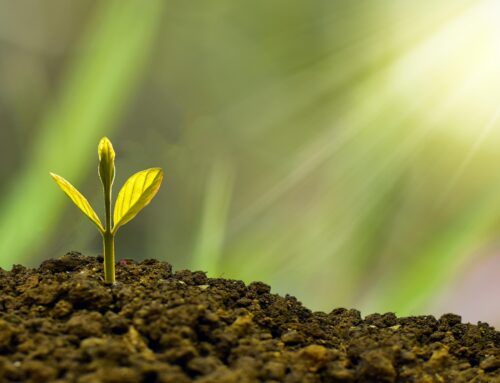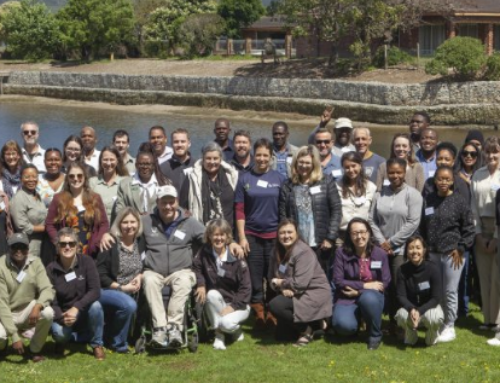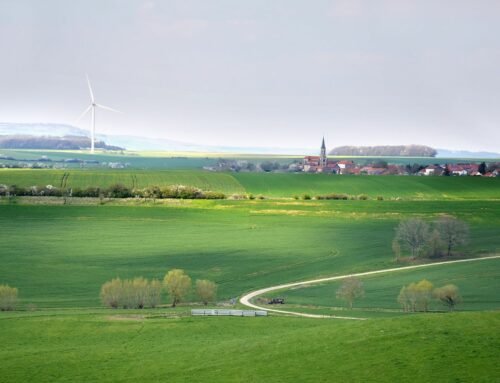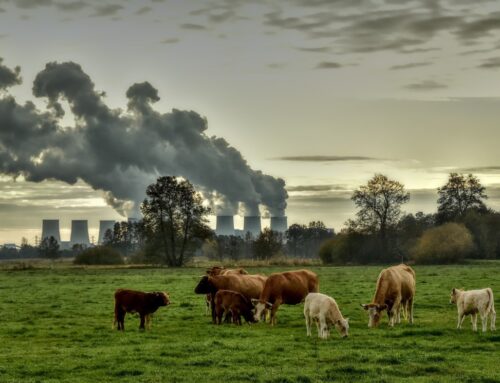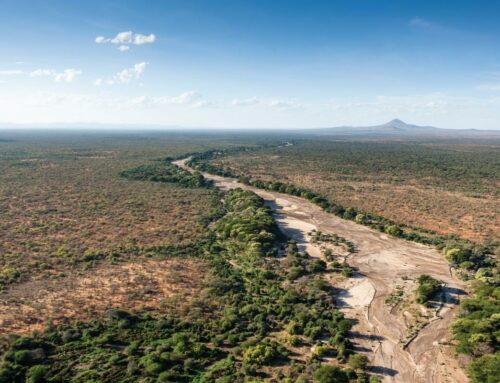Call for applications: PhD bursary for 2026
Biodiversity intactness of sub-Saharan Africa
Deadline for applications: 16 June 2025
Project background
A key challenge of the 21st century is transforming to sustainable and just development pathways that do not erode the ecological foundation on which human well-being depends. However, measuring how much biodiversity we are losing, what that means for human well-being, and what policies and strategies can support transformation to more sustainable pathways is a challenging task. This is particularly the case in an African context, where rapid socio-economic development is coupled with a chronic underrepresentation in global biodiversity datasets, indicators and maps. Data limitations have been noted by African decision-makers as a major constraint to mainstreaming biodiversity into national sustainable development efforts. This can bias international decision-making towards Global North solutions and globally modelled indicators that lack understanding of local context and risk being tenuous and even spurious in the African context.
To address the pressing need for context-appropriate biodiversity indicators and maps for sub-Saharan Africa, the ‘BII4Africa’ project mobilized African biodiversity expertise to map the Biodiversity Intactness Index (BII), producing a map that is credible and useful to African decision-makers (https://bii4africa.org/). The BII represents the average abundance of a large and diverse set of organisms in a given geographical area, relative to pre-industrial (‘intact’) reference populations1. The planetary boundaries framework proposes using the BII to capture the role of biodiversity in supporting Earth system functioning2,3, and it has also been put forward as an indicator of ecosystem integrity, for assessing progress towards Goal A of the Global Biodiversity Framework.
We are now looking to apply the BII4Africa map to undertake cutting edge research that helps mobilize just and sustainable transitions in the context of sub-Saharan Africa. We are seeking a PhD student to use the recently developed BII4Africa map to significantly advance our understanding of linkages between biodiversity intactness and human well-being under different scenarios of development across the African continent, in support of national and international policy that promotes just and sustainable futures.
Centre for Sustainability Transitions (CST), Stellenbosch University
The Centre for Sustainability Transitions (https://www0.sun.ac.za/cst/) builds on a strong history of transdisciplinary research and complexity studies at Stellenbosch University, providing a vibrant hub for solution-oriented sustainability science that hosts leading scientists and students from diverse disciplinary backgrounds in a state-of-the-art research centre. The primary objective of the CST is to provide transformational knowledge on the dynamics of multi-scale social-ecological change, and strategic insights into the new modes of research and governance that can bring about a just transition to a more equitable and sustainable society, in southern Africa and globally. The CST hosts a tailored PhD programme which aims to support inter- and trans-disciplinary sustainability research, including two foundational courses to support students entering the field from diverse backgrounds, and a course that supports thesis by publication format.
Call for applications
We seek motivated individuals interested to pursue a PhD linked to BII4Africa project, who have a keen interest in biodiversity, an interest to integrate across the social and natural sciences, and who enjoy collaboration and working in teams. Interested individuals should have a strong academic track-record, a willingness to participate in the events and activities of the CST, and be interested in developing a career around topics such as biodiversity, ecosystem services, scenarios, social-ecological systems, resilience, complexity thinking, and sustainability transformations.
A variety of potential topics could be pursued, relating to one or more of the following:
- Connections between biodiversity intactness and ecosystem services
- Connections between biodiversity intactness and human well-being
- Connections between biodiversity intactness and different national policies
- Scenarios of land use change and their implications for biodiversity and people
- The impact of different policies on biodiversity loss
- The biodiversity planetary boundary
Studies will be registered within the CST’s PhD program in the Faculty of Economic and Management Sciences. Supervisors will include Prof Reinette (Oonsie) Biggs, Dr Hayley Clements and Prof Alta De Vos. Prof Reinette (Oonsie) Biggs holds the South African Research Chair (SARChI) in Social-Ecological Systems and Resilience, and co-developed the BII1. Dr Hayley Clements, with support from a Jennifer Ward Oppenheimer Research Grant, led a project from 2020 to 2023 which involved 200 experts in African biodiversity to map the BII for sub-Saharan Africa. Prof Alta De Vos is science director of the Society for Social-Ecological Systems (SocSES), and the Director of the Programme for Ecosystem Change and Society (PECS), a Future-Earth global research project that aims to integrate research on the stewardship of social–ecological systems, the services they generate, and the relationships among natural capital, human wellbeing, livelihoods, inequality and poverty, and has substantial experience in spatial mapping and analysis.
Funding
Bursaries will be funded from the NRF SARChI chair held by Prof Biggs. The NRF minimum academic requirement for PhD funding is 65% average for the preceding Masters degree. There is no age restriction.
Successful applicants will be funded either at Full Cost Study (FCS) or Partial Cost of Study (PCS). The FCS funding will be awarded to South African citizens and permanent residents only, who are either financially needy (i.e., those whose combined household family income is less or equal to R350 000 per annum), living with a disability, or exceptional academic achievers. PCS funding will be awarded to 5% of international students including South African citizens and permanent residents who could not be funded under FCS but meet other minimum requirements for the NRF scholarship funding criteria.
Subject to availability of funds, CST aims to top‐up NRF funding to R 180,000 pa (R 15,000 per month). Tuition and reasonable running and travel expenses will also be covered where possible. Successful completion of two non-credit bearing modules and defense of a research proposal within the first year will be a pre‐requisite for continuing with the PhD.
Requirements
We are looking for a critical systems thinker who show a strong aptitude for learning new skills, problem-solving, and working in teams. Potential PhD candidates should have completed a Masters degree or equivalent, and have a background in the natural sciences with evidence of a strong foundation in ecology. Demonstrable quantitative analytical skills are required, including an ability to work with large datasets and spatial data, and to perform statistical analyses. Coding skills (e.g., python, R) and ability to work with Google Earth Engine or other such platforms, as well as experience in the use of mixed methods, would be advantageous. All candidates should show evidence of strong scholarly performance. Based on the National Research Foundation’s funding guidelines, strong preference will be given to South African nationals and under-represented groups.
To apply
Applications will follow a 2-step process:
Step 1. Apply to CST
All interested candidates should first apply to the CST by emailing the following documents to cstenquiries@sun.ac.za by 16 June 2025 with the subject line “PhD application: BII4Africa”:
- a motivation letter detailing your previous academic and work experience, and how your experiences, education and skills speak to the proposed research topic, as well as your specific interests with regard to the proposed project,
- a detailed CV that includes your academic record, previous work experience, any scientific publications on which you have been an author, and the names of at least two academic referees,
- transcripts of academic qualifications,
- at least one example of recent written work (e.g. a paper, report, thesis chapter).
We will conduct interviews with shortlisted candidates on Wednesday afternoon 25 June 2025. Please keep this afternoon open.
Step 2. Apply to NRF
Selected candidates will then be instructed to apply on the NRF system by 4 July 2025, and link their application to Prof Biggs’ SARChI Chair. Instructions on this process will be communicated to successful applicants in step 1. Please note that this is a substantial application process; successful candidates in step 1 should set aside adequate time to prepare this application between 26 June and 4 July.
Please note that funding will only be awarded to candidates selected and approved by the NRF in step 2.
Enquiries
Enquiries can be directed to cstenquiries@sun.ac.za. Please use the subject line “Enquiry: BII4Africa” as multiple positions are being advertised.



